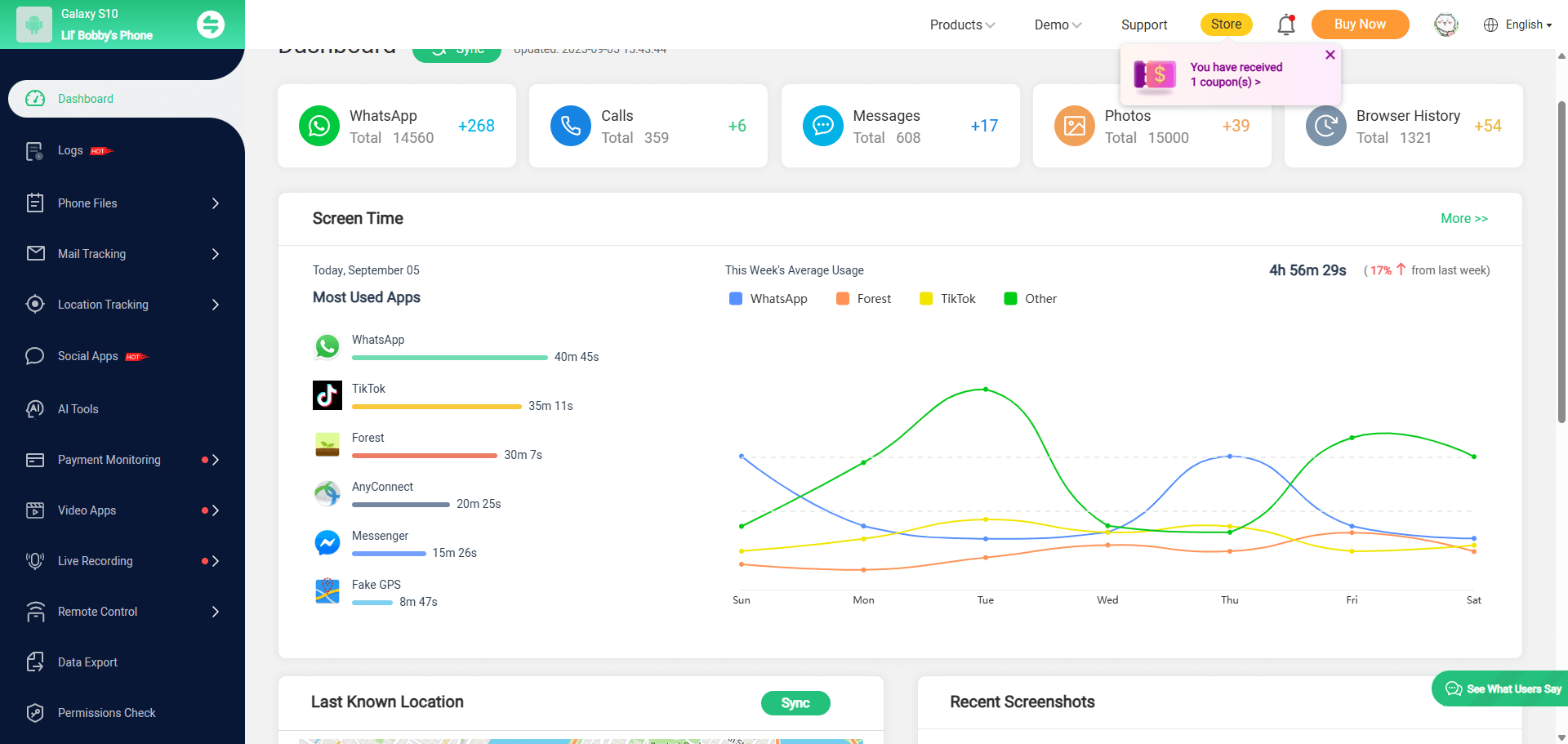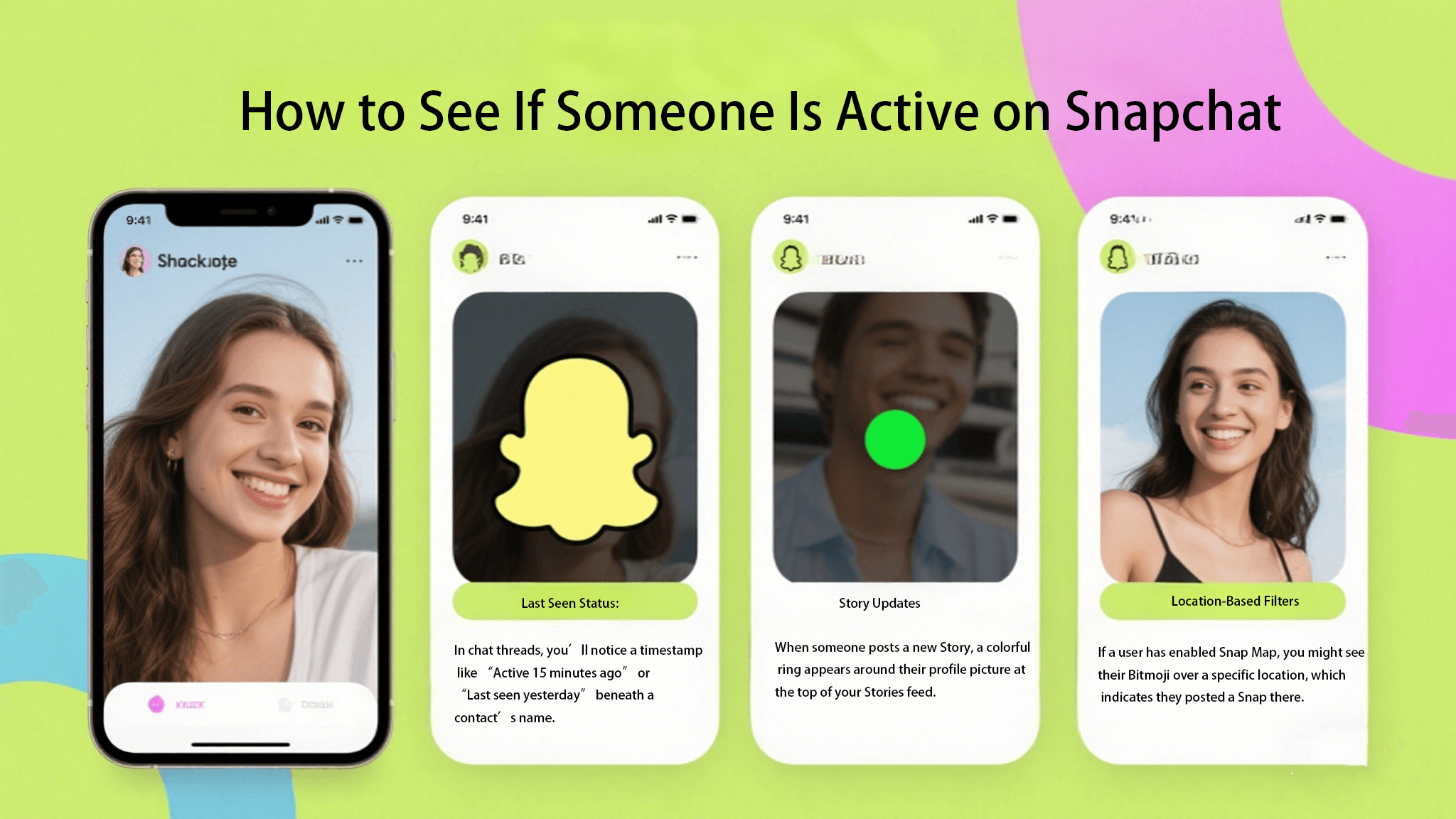FamiGuard Support: Monitor Devices with Others' Permission.
Smartphones have become indispensable in modern life — for work, socializing, news, and entertainment. But when use crosses the line into constant checking, distraction, or secrecy, it’s no longer just a convenience. Increasingly, partners are facing the challenge of a husband addicted to phone, which can quietly erode trust, intimacy, and daily communication. This guide explains how to recognize the problem, why it happens, and, most importantly, how to fix it together.

Table of Contents
Why Some Husbands Become Addicted to Phones
Understanding the cause helps you approach the problem without blame. Common drivers include:
Work Blurring into Home Life
Remote work and always-on communication make it easy for work tasks and messages to dominate personal time. What starts as “checking email” can turn into hours of attention diverted to the screen.
Social Media and Validation Loops
Likes, shares, and endless feeds trigger dopamine hits. For some people, social media fills emotional needs—validation, novelty, or escape—that should be met in real life.
Gaming and Micro-Escapes
Mobile games and video content are engineered for engagement. Quick escapes after a stressful day can become habitual coping strategies.
Loneliness or Avoidance
When communication in a relationship is strained, one partner may use their phone to avoid difficult conversations or to get emotional comfort elsewhere.
How Phone Addiction Affects Your Relationship
A husband addicted to phone doesn’t just lose time; the relationship loses connection. Common consequences include:
Less meaningful conversation and emotional intimacy.
Increased misunderstandings and unmet expectations.
Lowered sexual desire and distraction during intimate moments.
Resentment from the partner who feels neglected.
Potential trust issues if secrecy or suspicious behavior appears.
Addressing phone addiction early prevents these patterns from becoming entrenched.
Practical Steps to Help a Husband Overcome Phone Addiction
Change works best when it’s collaborative and compassionate. Here are concrete methods you can implement this weekend and maintain long-term.
1. Start With a Calm Conversation (Not an Accusation)
Pick a neutral moment and say how you feel using “I” statements: “I feel lonely when we both have dinner and you’re on your phone.” Avoid labels like “addict” in the first talk—focus on specific behaviors and their impact. Offer help rather than ultimatums.
2. Set Clear, Agreeable Boundaries
Work together to define simple rules: no phones during meals, phones off 30 minutes before bed, or no phones in the bedroom. Put the rules in writing and review them weekly. When couples set mutual boundaries, compliance improves.
3. Use Apps and Tools to Make It Easier
Technology can support behavior change. Tools let you set limits without moralizing:
Screen time limits: Schedule app or device downtime.
App blockers: Temporarily block distracting apps (social media, games) at agreed times.
Usage reports: Review weekly summaries together so progress feels measurable.

FamiGuard not only provides app-blocking and screen-time controls, it also offers monitoring features that make change easier to manage as a couple. You can see app-usage frequency and website activity in weekly reports, check basic device activity summaries, and use location tracking and geofencing alerts when agreed upon. These monitoring tools act as a neutral, third-party way to review progress and hold each other accountable—without turning conversations into accusations.
4. Create Phone-Free Rituals
Rituals replace habits. Try:
Daily 20-minute walk after dinner with phones left at home.
Weekly date nights where both devices stay in a basket.
Morning coffee together without notifications for the first 30 minutes.
5. Replace, Don’t Just Remove
If the phone filled a need—relaxation, socializing, distraction—offer alternatives: podcasts, books, shared hobbies, or a game you enjoy together. The easier and more enjoyable the replacement, the more likely the new habit will stick.
6. Use Positive Reinforcement
Set short challenges (phone-free dinner for a week) and celebrate success—small rewards, a favorite snack, or a low-key outing. Positive feedback beats nagging and creates momentum.
7. Manage Sleep and Health
Blue light from phone screens disrupts sleep and mood. Agree to a tech cutoff 60 minutes before bedtime and create a restful pre-sleep routine—reading, light stretching, or a relaxation audio track.
8. Track Progress and Adjust
Set realistic targets (reduce screen time by 30% the first two weeks) and check progress. If one plan isn’t working, iterate. The goal is sustainable improvement, not perfection overnight.
A 30-Day Digital Reset Plan for Couples
This simple plan gives structure. Adjust the timelines based on your life.
Week 1 — Awareness: Track baseline phone use. Note triggers (boredom, stress).
Week 2 — Boundaries: Implement “no-phone zones” (bedroom, dinner). Use an app to set limits.
Week 3 — Replacement: Add two shared activities per week (walks, board games).
Week 4 — Consolidation: Review progress, celebrate wins, and set long-term rules.
Keep the plan visible (sticky note on the fridge) and review it together weekly.
When to Seek Professional Help
Most couples can reduce excessive phone use with mutual effort and tools. However, professional help is appropriate if:
Phone use is tied to severe anxiety, depression, or substance misuse.
There’s persistent secrecy, infidelity, or emotional distancing that doesn’t improve with efforts.
Boundaries are repeatedly broken and conflict escalates into abuse or ongoing hostility.
Couples therapy or individual counseling can address underlying issues (stress, avoidance, attachment) that fuel phone dependency.
FAQs
Q: My husband refuses to use apps that limit phone time. What can I do?
A: Focus first on communication and small boundary changes that don’t feel punitive. Suggest one low-friction change (no phones during meals for two weeks) and evaluate together. If resistance persists, propose a temporary experiment with a mutually agreed reward.
Q: Will deleting social apps help?
A: Deleting apps can be effective short-term, but it may cause avoidance or secrecy. A better approach is agreed limits plus alternatives and open conversation about why the apps are used.
Q: Is it “normal” to check phones often?
A: Frequent checking is common due to how apps are designed. It becomes problematic when it harms your relationship or daily functioning. The test is whether both partners feel connected and respected.
Conclusion
A husband addicted to phone can be a painful experience, but it’s often a solvable one when handled with empathy, clear boundaries, and practical tools. Start with a calm conversation, set simple rules, use apps like FamiGuard for structured limits, and replace screen time with meaningful shared activities. Change takes time—celebrate small wins and keep working together. With patience and consistency, you can restore connection and create a healthier balance between digital life and your relationship.
By Tata Davis
An excellent content writer who is professional in software and app technology and skilled in blogging on internet for more than 5 years.












































